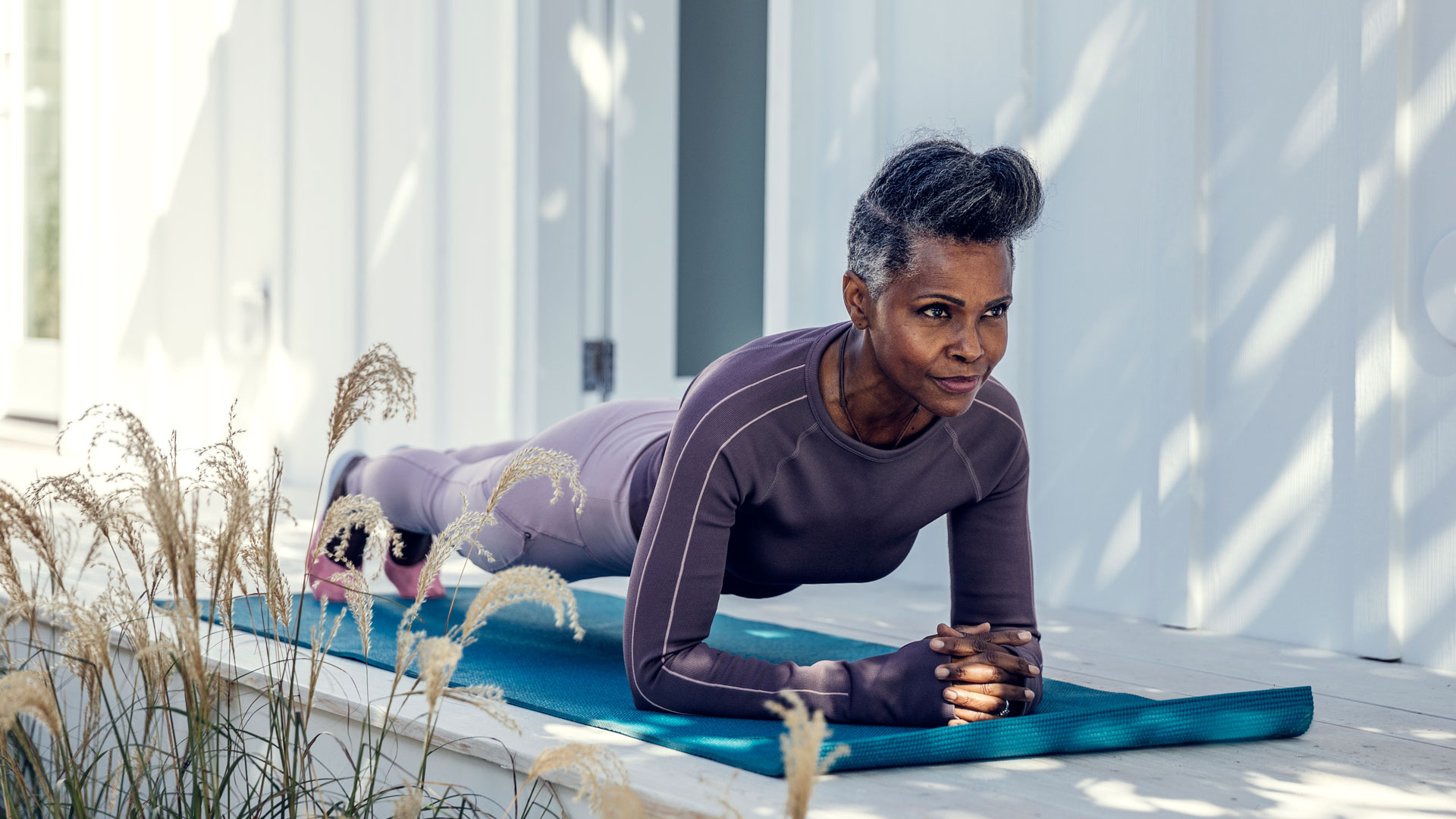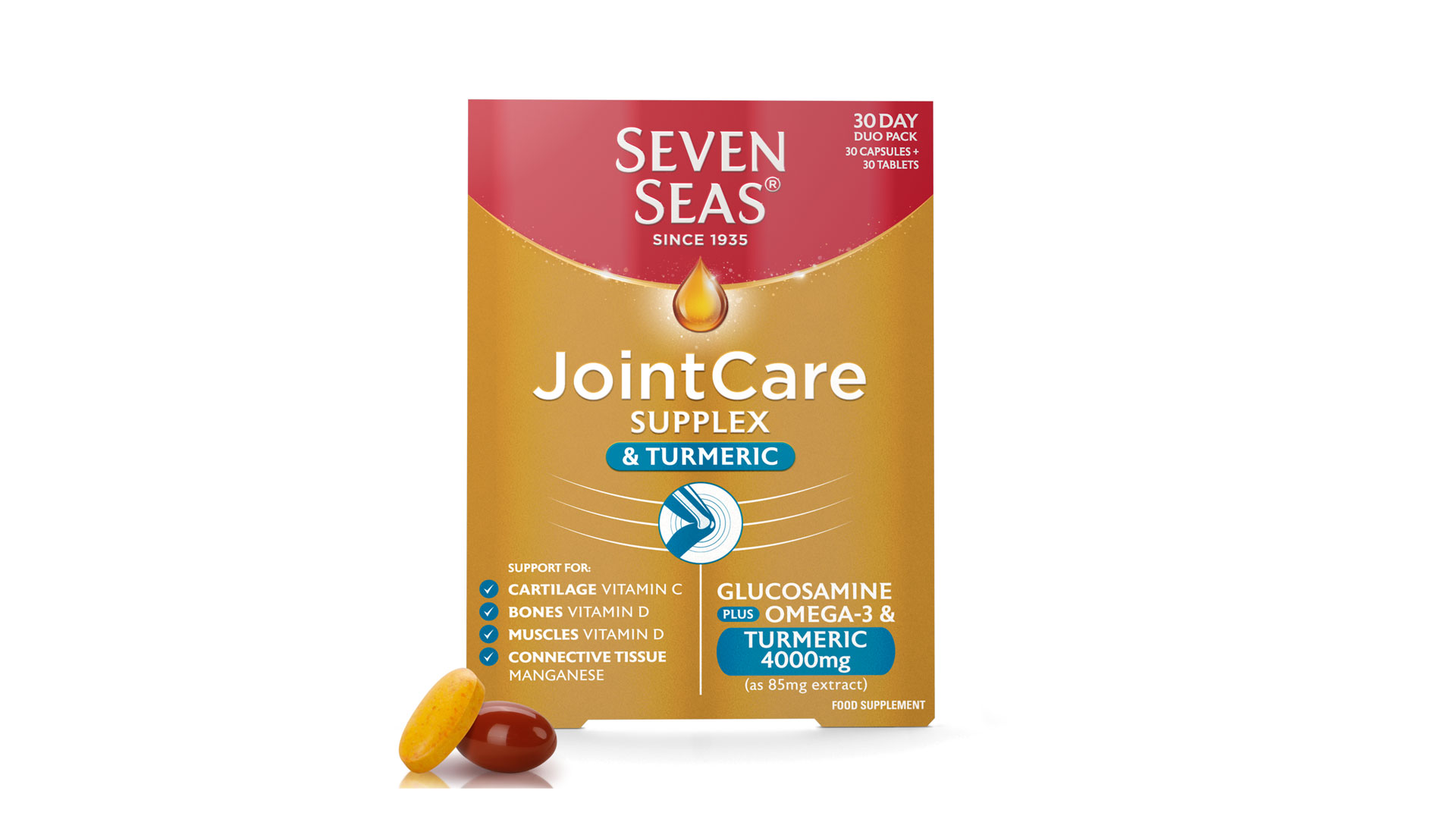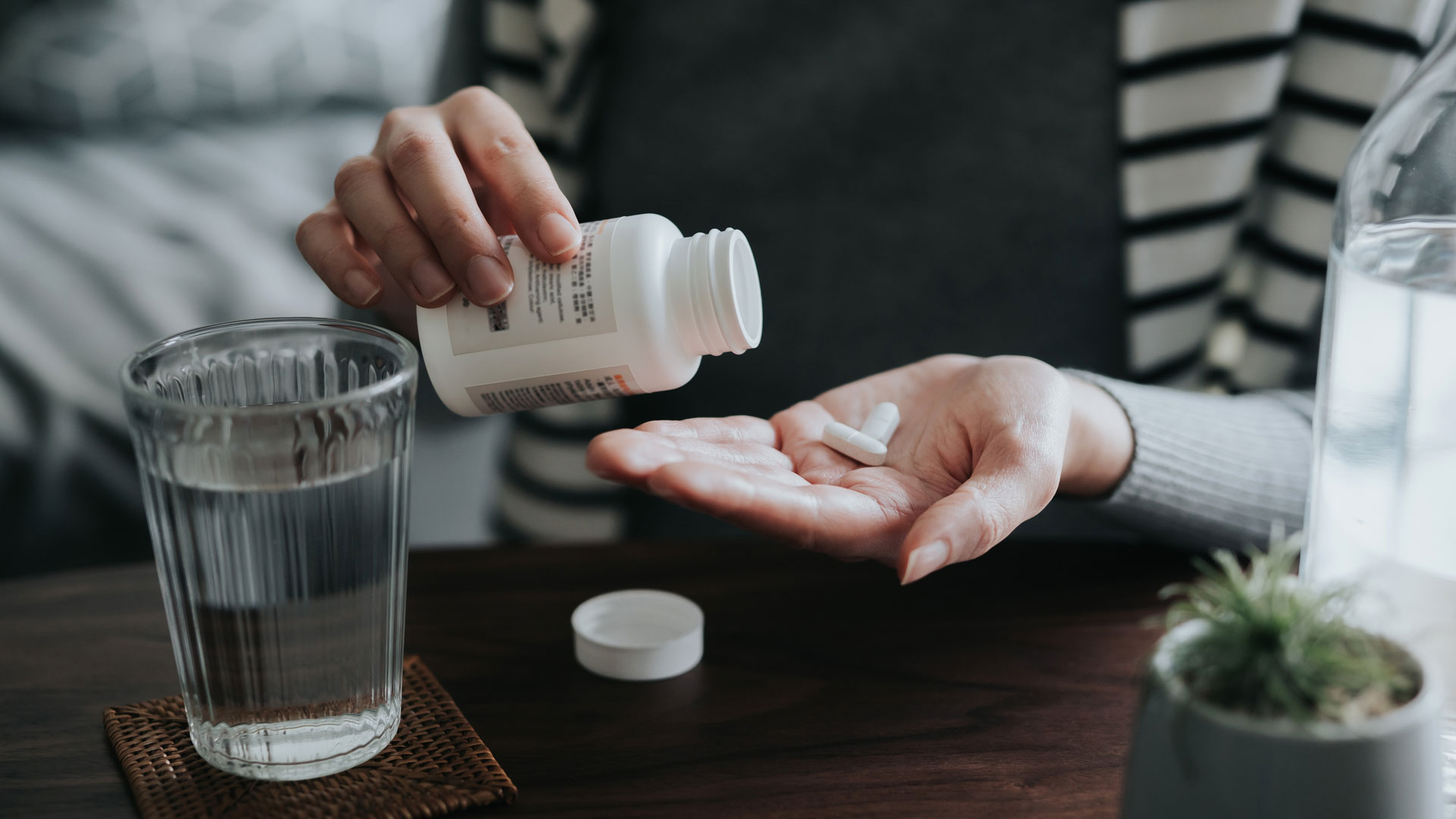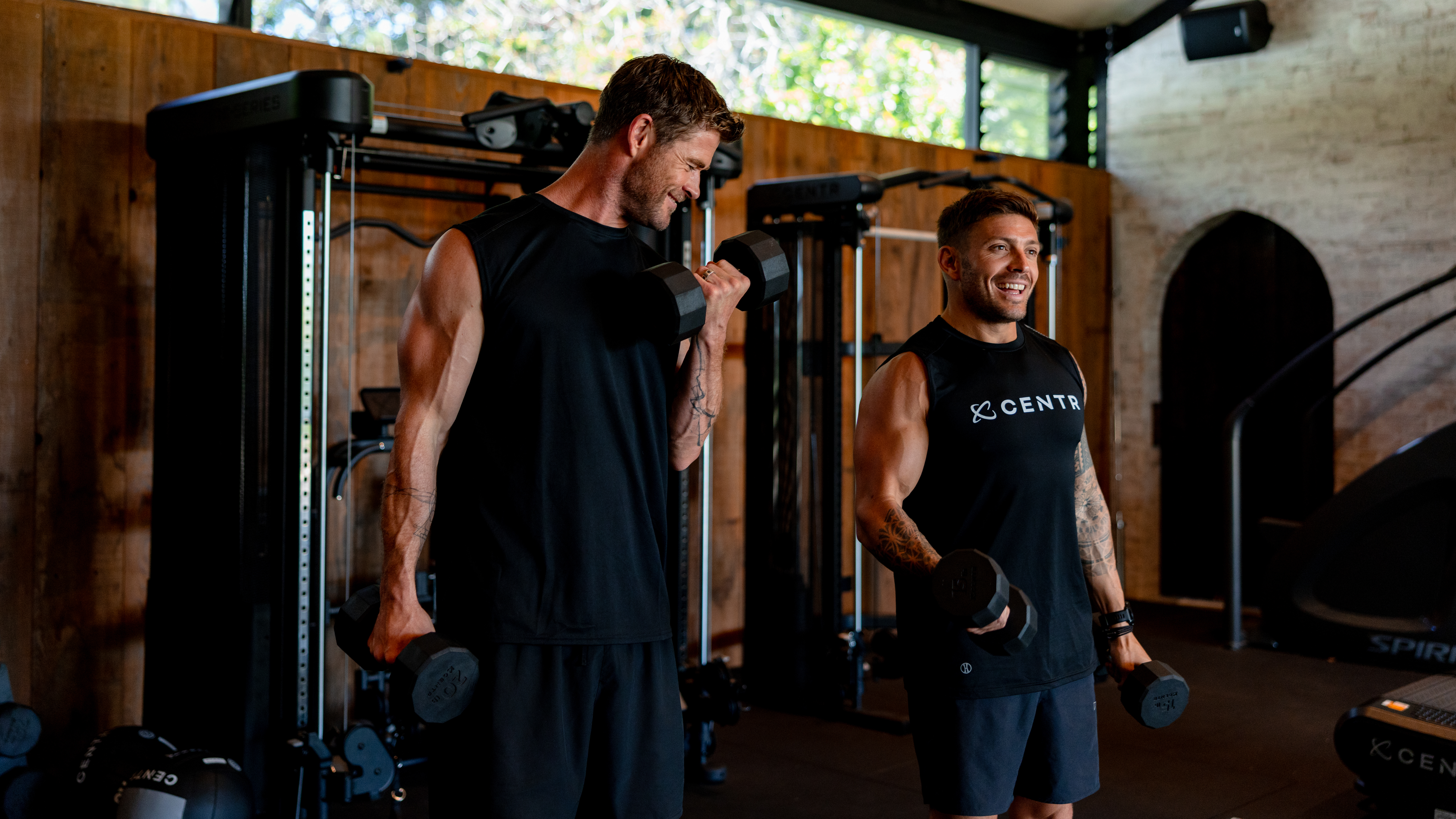5 ways to look after your joints as you age
There’s no denying that our joints change as we age, but fear not! There are many ways that you can look after them to keep them at their best


In partnership with Seven Seas.
Some structural changes are inevitable with ageing, even if our bodies are healthy. But there is no doubt that the better you look after your joints the more likely they are to keep working well for you. Keeping active and adopting good habits early on is important to minimize wear and tear so that you can continue living life at the age you feel, read on to discover five ways to look after your joints as you age.
Plus, if you’re looking for a helping hand, Seven Seas’ entire JointCare range has been formulated to support an active lifestyle, providing four-in-one support for the main components of a joint - bones, cartilage, muscles, and connective tissue (1).
Here are 5 ways to look after your joints as you age.
1. Eat a Mediterranean diet
Eating a balanced diet is important for so many aspects of aging, not just for your joints. A Mediterranean diet is one of the best approaches you can adopt because it is easy to understand and rests on the principles of healthy eating. This way of eating focuses on including lots of fresh fruits and vegetables, lean meats, oily fish, healthy fats, and olive oil.
Omega-3 fatty acids in particular are abundant in a Mediterranean diet. The best source of omega-3 is oily fish, particularly those with the acronym ‘SMASH’ - salmon, mackerel, anchovies, sardines, and herring. But don’t worry if you don’t eat fish, you can still get omega-3 from plant-based sources like nuts, seeds, and green leafy vegetables. However, these do tend to be higher in ALA (alpha-linolenic acid) omega-3, rather than the EPA and DHA fatty acids that play an important role in our health (2).
Struggling to hit your omega-3 intake? Seven Seas' entire JointCare range is formulated with omega-3 EPA and DHA to support normal heart function. Omega-3 DHA also supports normal brain function and the maintenance of normal vision - both critical processes as we age (2).
2. Maintain a healthy weight
Eating well and following a varied, balanced diet also contributes to the maintenance of a healthy body weight. Carrying extra weight puts stress on our joints, especially the weight-bearing ones like the knee. In fact, when you walk on a flat surface, the force on your knees is equivalent to 1.5 times your body weight. At an incline, the pressure is even greater, with the force on each knee two to three times your body weight.
Maintaining a healthy weight can therefore go a long way in maintaining joint health. Try to minimize the amount of processed food in your diet, as this is high in sugar, salt, and saturated fat which can contribute to weight gain. Focus on eating good quality protein in every meal and fill up on lots of fibrous vegetables too- a minimum of five a day. While exercise alone won’t help you to lose weight, it does play an important role in keeping unnecessary weight off.

3. Exercise regularly
Exercise might be the last thing on your mind if you are feeling a bit stiff, and you may assume that movement can damage ageing joints. But movement can actually help to keep joints healthy, while strengthening the muscles around the joints too.
What type of exercise is a good choice? Opt for low-impact aerobic exercises such as cycling or swimming, or hop on an elliptical machine at your local gym. Yoga and Pilates are also good options that include flexibility and improve your range of motion.
Strength bearing exercises are important for maintaining muscle mass too. Start slowly, using resistance bands or bodyweight, and increase your intensity slowly.

4. Get enough bone health nutrients
Our bones naturally break down and rebuild themselves up to the age of 30. After reaching peak bone mass, we begin to slowly lose bone density. This loss accelerates when a woman hits menopause, reducing peak bone mass by 15%.
One of the first nutrients we think of when it comes to bone health is calcium. And rightly so. Foods high in calcium include dark leafy greens, oily fish (with bones), milk, yogurt, and broccoli. However, having adequate levels of vitamin D is also critical in order for us to absorb calcium from our food or any supplements we may be taking (3). Luckily, Seven Seas Joint Care range contains vitamin D to contribute to the maintenance of normal bones and muscle function.
Manganese is also a lesser-known mineral, but one that contributes to the normal formation of connective tissue, this is what holds joints together. Copper helps maintain normal connective tissue. Both can be found in products in the Seven Seas JointCare range.

5. Improve your posture
Perhaps the simplest thing we can do to support joints in ageing is to practice good posture, since poor posture contributes to decreased flexibility and stiffness. While we might think of posture as simply ‘not slouching’, there are actually two types; static and dynamic. Static posture is the way you hold yourself when you’re not moving, i.e. sitting, standing, or sleeping. Dynamic posture is the way you hold yourself as you move, whether it’s walking, bending over, or reaching forward. Bad static or dynamic posture can be caused by a number of factors, from hunching forward while washing the dishes, to sleeping on an uncomfortable mattress.
To improve your posture, try to become more aware of situations when you find yourself slouching. Stand up tall, and look forward. Stand with your shoulders back, knees straight, and belly tucked in. Don't let your booty or hips stick out.
----
Food supplements must not replace a varied, balanced diet and a healthy lifestyle.
(1) Vitamin D which supports normal functioning muscles and normal bones. Vitamin C for the normal formation of collagen for the normal function of cartilage. Manganese for the normal formation of connective tissues. Copper contributes to maintenance of normal connective tissues.
(2) A daily intake of 250mg EPA (Eicosapentaenoic Acid) and DHA (Docosahexaenoic Acid) helps support normal heart function. 250mg DHA daily helps support normal vision and brain function.
(3) Vitamin D contributes to normal absorption and utilisation of calcium.
Get the Fit&Well Newsletter
Start your week with achievable workout ideas, health tips and wellbeing advice in your inbox.

Alice Ball is the Health Editor for Future Plc. With more than five years of experience working in health journalism, she's covered everything from why we should 'kill' the calorie, to destigmatizing the menopause. Alice also specializes in nutrition and supplements. She's a self-confessed running fanatic, currently in training for her fifth marathon. She enjoys documenting her progress on her Instagram account, @aligoesrunning. Alice works across a number of Future's sites, including LiveScience and Fit&Well.
-
 Build blockbuster arms and abs with Chris Hemsworth's go-to dumbbell circuit
Build blockbuster arms and abs with Chris Hemsworth's go-to dumbbell circuitAll you need are adjustable dumbbells and 20 minutes
By Sam Rider Published
-
 Forget crunches—if I wanted to improve core strength I'd do this neck-friendly Pilates workout
Forget crunches—if I wanted to improve core strength I'd do this neck-friendly Pilates workoutAnd it takes just five minutes
By Maddy Biddulph Published